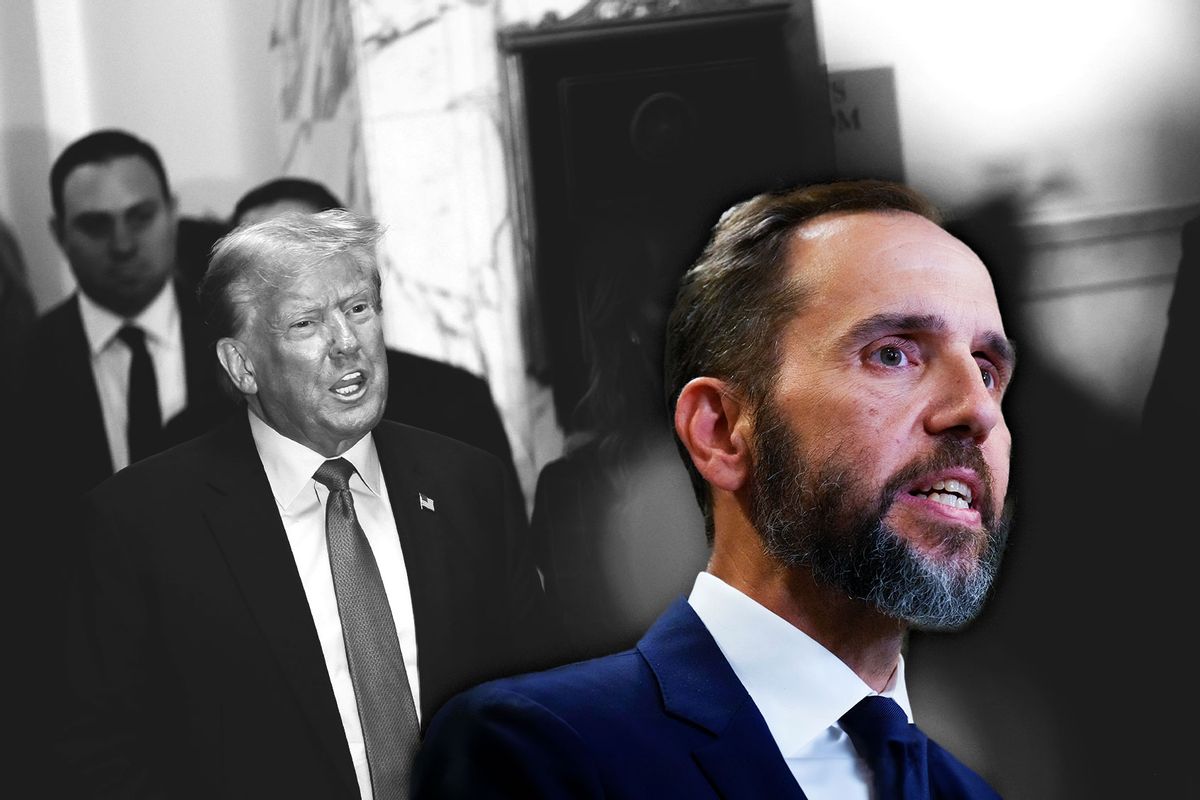Special counsel Jack Smith's final report on Donald Trump’s attempts on and before January 6 to overturn the 2020 election states that the case against the president-elect would’ve been strong enough to convict him if he hadn’t won his re-election bid.
“But for Mr. Trump's election and imminent return to the Presidency, the Office assessed that the admissible evidence was sufficient to obtain and sustain a conviction at trial,” Smith wrote.
Trump and his allies unsuccessfully fought to block the report’s release. A second volume of Smith’s report, concerning Trump’s retention of classified documents, has been at least temporarily blocked by Judge Aileen Cannon.
The 137-page final report lays out alleged schemes by Trump to pressure state officials in Michigan, Georgia, Arizona and other states to change election results, send fake slates of electors to Congress, abuse the Department of Justice's credibility to bolster his election subversion campaign, pressure then-Vice President Mike Pence to illegally stop the electoral count certification and ultimately encourage a mob of his supporters to march on the U.S. Capitol.
Smith wrote that his office “stands fully behind” its findings but acknowledged DOJ’s policy against indicting or prosecuting sitting presidents. Despite a lack of accountability for the president-elect, the report’s release contains a startling and detailed look at Trump’s plans to hold onto power at any cost.
Smith’s report alleges that Trump was fully aware that his voter fraud claims weren’t true, noting that “some of the highest-ranking officials in his own Administration, including the Vice President, told him directly that there was no evidence to support his claims.”
Per the report, Trump acknowledged that his attorney Sidney Powell’s false claims about voting machines were “crazy” before he spread them.
His co-conspirators, too, kept pushing without evidence. When Arizona House Speaker Rusty Bowers asked Rudy Giuliani for evidence of election fraud, Trump's former attorney “conceded to the Arizona Speaker at an in-person meeting a week later that ‘we don't have the evidence, but we have lots of theories.’”
The report lays out a vast case against Trump, alleging significant misuses of his position while omitting “evidence uncovered regarding Mr. Trump's misuse of presidential power” in light of the Supreme Court’s ruling that he enjoys immunity for "official acts."
But Trump’s pressure campaign on state legislators is laid out meticulously, as is his plan to put pressure on Pence, which the report portrays as actions he took as a private citizen.
In the weeks following the 2020 vote, after Trump’s own Attorney General William Barr admitted no widespread fraud had occurred, the then-president “considered appointing…a Justice Department attorney who worked on civil matters to be the Acting Attorney General… [who ]was willing to use the Justice Department to spread Mr. Trump's lies and pressure targeted states to overturn election results.”
The report alleges that Trump told DOJ officials to “just say that the election was corrupt and leave the rest to me and the Republican congressmen.”
Finally, when other schemes to subvert the vote didn’t work, Trump “made one more attempt to retain power” on Jan. 6, the report found. Trump admitted the day before the attack that his supporters were “angry” and ready to “go by very different rules” due to his fraud claims, but still told a crowd to “fight” and march to the Capitol.
As rioters breached the Capitol building, the special counsel report alleges that the then-president sat back and watched the proceedings unfold on TV, dismissing the concerns of aides and refusing to ask rioters to leave for over two hours while they interrupted the electoral certification process.
The special counsel’s office navigated an “unprecedented” prosecution during Trump’s third campaign for president, following the DOJ’s “election year sensitivities policy.” In a final letter to Attorney General Merrick Garland, Smith called Trump’s allegations of a politically motivated prosecution “baseless” and his attempts to block the report “disingenuous.”
Ultimately, Smith categorically rejected “claims that dismissal of his criminal cases signifies Mr. Trump's ‘complete exoneration.’”
“The Department's view that the Constitution prohibits Mr. Trump's indictment and prosecution while he is in office is categorical and does not turn on the gravity of the crimes charged, the strength of the Government's proof, or the merits of the prosecution-all of which the Office stands fully behind,” Smith wrote in a Jan. 7 letter, two days before his resignation.
Read more
about Trump's election subversion



Shares